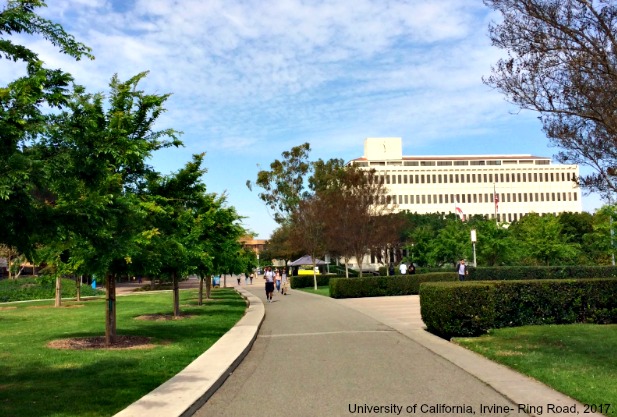Charter schools are often a topic of debate the educational field. Traditional or neighborhood “public” schools are tasked with helping large populations of students and might be restricted at times because of state standards and the narrow focus on testing, but I think it is crucial to consider successful practices to help student overall success and increase the access to college, such as those found in public charter schools.
When I was younger, I remember hearing teachers and community members talk about charter schools and being pretty upfront about their skepticism and criticism. As a product of San Bernardino City Unified School District, I have only known “traditional” public schools. Once I made it to the University of California, Irvine (UCI) and started to take education courses, I started to learn about the flexibility that charter schools had offered some of my peers. While in college, I have met many people from different cities, regions, and even countries who have shared their personal educational experiences in their previous education systems with me. Many of my close friends and peers here at UCI grew up and attended charter schools in the Los Angeles Unified School District.
During conversations with my peers, one particular experience really stuck out to me, and it related to the strong support provided by the school and its long term network for success. Students from one charter school in Los Angeles were provided with a college scholarship and would have check-in meetings with an advisor each year while enrolled in the university. This particular peer participated in an alumni foundation for the high school at UC Irvine where she met up with others who attended the charter school to host college tours for the current high school students along with other volunteer opportunities in their community. While I was in high school I was lucky to visit one college campus outside of San Bernardino, I even accepted my admission offer from UCI prior to visiting the campus because our school offered limited field trips and my family members could not take me to visit schools since they were often working. Most of my exposure came from being involved with a community organization, Inland Congregations United for Change. Additionally, the high school students from my peer’s charter school were often offered one-on-one tutoring because of the smaller class size, which has helped my friend become fluent and score well in her college general education courses. My peer’s siblings, who also attended this school, ended up graduating from Ivy League institutions such as Brown and Cornell University because they were encouraged and given strong support throughout the college application process and even while they’ve been at the university.
Finally, during the summer, students from this particular charter school would take courses at the University of Southern California and were consistently exposed to a competitive university. This story is among the several from those who shared the impact of how much their charter school helped prepare them for college. I have been a witness to their academic preparation and have been impressed in classes with them. Many had a much stronger background of basic knowledge for sciences, math, and were overall well rounded students. I have also noticed their studying skills and the discipline that has been integrated within them. Since I have been at the university, I have come to realize that the quality of our previous educational experiences and background have a huge impact on our success at the university. While I am here and I am making it, as a product of traditional public schools, I have not had some of the same tools and resources as others who have attended high quality charter schools that were focused on college readiness. Our schools should consider how we can build support systems for students once they leave high school and are in college.
Alicia Aguayo
Latest posts by Alicia Aguayo (see all)
- Brown Homosexual, Escritor, Poeta, Organizadora Juvenil, Luchadorx: Erika Del Carmen Ruíz - September 26, 2018
- 10 Consejos Para Padres con Estudiantes Universitarios de Primera Generación - September 25, 2018
- Brown Queer, Writer, Poet, Youth Organizer, Luchadorx: Erika Del Carmen Ruiz - September 24, 2018
- 10 Tips for Parents with First Generation College Students - September 20, 2018
- Conozca a Yazmin Mercado, Estudiante Universitaria de Primera Generación del Condado de Riverside En Camino a Cal Berkeley - August 6, 2018

